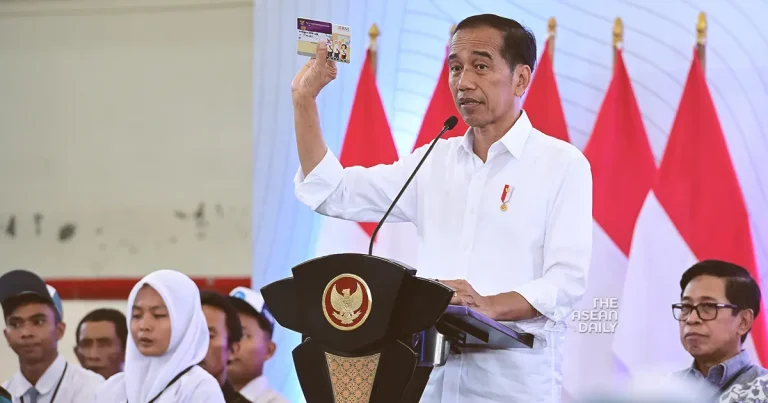13-2-2024 (JAKARTA) As the highly anticipated presidential elections approach in Indonesia, the influence of President Joko Widodo, affectionately known as Jokowi, looms large over the political landscape. Despite being constitutionally barred from seeking a third term, Jokowi’s popularity and loyal following have positioned him as the kingmaker in the upcoming polls.
With consistently high public ratings, Jokowi’s approval stands at an impressive 80 percent according to a late January opinion poll. This level of support grants him significant political capital, allowing him to sway the outcome of the election by throwing his weight behind specific candidates, as noted by observers.
However, Jokowi’s involvement in the electoral process has not been without controversy. Critics have accused him of nepotism after the constitutional court ruled in favor of his eldest son, Gibran Rakabuming Raka, contesting the election. The court’s decision, which stated that the minimum age requirement of 40 for presidential and vice-presidential candidates does not apply to elected regional leaders, sparked allegations of favoritism. Gibran, who is currently the mayor of Surakarta city, Jokowi’s hometown, was able to include his name on the ballot. This move drew criticism from opponents who argued that it set a precedent for nepotism and undermined democracy in Indonesia.
Moreover, Jokowi’s perceived backing of his son’s running mate, Defence Minister Prabowo Subianto, has further heightened his influence on the election. Since Gibran’s addition to Prabowo’s ticket, the former’s ratings have soared, putting him in a double-digit lead over other presidential hopefuls Anies Baswedan and Ganjar Pranowo. While Jokowi has not officially endorsed any candidate in the race to succeed him, his son’s presence on Prabowo’s team is widely seen as a tacit seal of approval from the current president.
This phenomenon, dubbed “the Jokowi effect,” has sparked a surge of support for the Prabowo-Gibran camp. Projo, a large network of volunteers who played a crucial role in Jokowi’s election victories in 2014 and 2019, has now rallied behind Prabowo and Gibran. They attribute the growing popularity of the ticket not to Projo or Gibran alone, but to the enduring influence of Jokowi himself. According to Mr. Handoko, Projo’s secretary-general, Jokowi’s position is now crystal clear, leaving no room for doubt among the electorate.
As the campaign intensifies, it is worth noting that Jokowi has not shied away from actively participating in the political arena. While he is set to step down in October after serving the maximum two terms, his face prominently features on campaign posters supporting the Prabowo-Gibran ticket. Jokowi has also continued his trademark “blusukan” visits, impromptu on-the-ground tours, during the campaign period. However, he has faced criticism for potentially blurring the lines between his official duties and campaign activities. Jokowi has emphasized the importance of separating state facilities from campaigning but has faced scrutiny over his repeated visits to different regions, where he has distributed goods and offered assistance.




